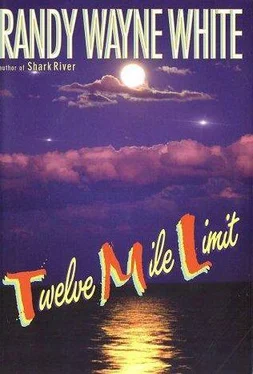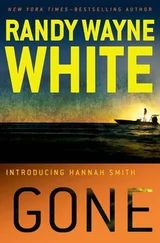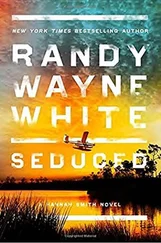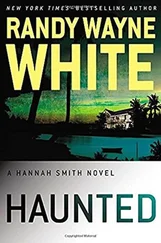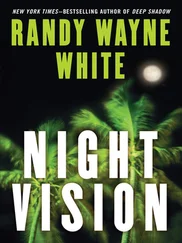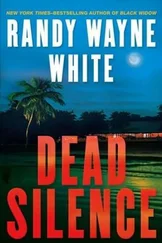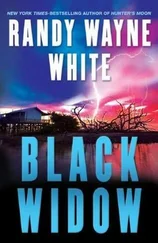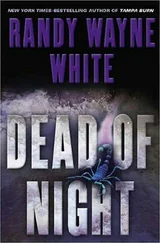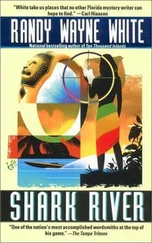Randy White - Twelve Mile Limit
Здесь есть возможность читать онлайн «Randy White - Twelve Mile Limit» весь текст электронной книги совершенно бесплатно (целиком полную версию без сокращений). В некоторых случаях можно слушать аудио, скачать через торрент в формате fb2 и присутствует краткое содержание. Жанр: Триллер, на английском языке. Описание произведения, (предисловие) а так же отзывы посетителей доступны на портале библиотеки ЛибКат.
- Название:Twelve Mile Limit
- Автор:
- Жанр:
- Год:неизвестен
- ISBN:нет данных
- Рейтинг книги:4 / 5. Голосов: 1
-
Избранное:Добавить в избранное
- Отзывы:
-
Ваша оценка:
- 80
- 1
- 2
- 3
- 4
- 5
Twelve Mile Limit: краткое содержание, описание и аннотация
Предлагаем к чтению аннотацию, описание, краткое содержание или предисловие (зависит от того, что написал сам автор книги «Twelve Mile Limit»). Если вы не нашли необходимую информацию о книге — напишите в комментариях, мы постараемся отыскать её.
Twelve Mile Limit — читать онлайн бесплатно полную книгу (весь текст) целиком
Ниже представлен текст книги, разбитый по страницам. Система сохранения места последней прочитанной страницы, позволяет с удобством читать онлайн бесплатно книгу «Twelve Mile Limit», без необходимости каждый раз заново искать на чём Вы остановились. Поставьте закладку, и сможете в любой момент перейти на страницу, на которой закончили чтение.
Интервал:
Закладка:
I was more interested in inspecting the bodies. Six looked to be Middle Eastern, but neither the big Samoan nor the albino was among them.
34
Back in Cartagena, I behaved as a modern, responsible adult is expected to behave. As with the heirs of the very wealthy, victims of crime are assigned many small, legal obligations by governments, as if to punish them. I busied myself taking care of those details for all involved. But that feeling of clarity, of pure purpose- Stallings and Kazan -stuck with me.
My first consideration was Janet, Grace, and their fellow captives. The FBI and the State Department wanted to debrief them, but both agencies agreed to wait until they’d had complete physicals and their health was back on track. That meant the nine of them had to stick around in Colombia for a few days before flying home, and they insisted on spending those days together, as a group.
So I got them rooms at the Hotel Santa Clara. Made sure that the superb staff there kept them stuffed with gourmet food and local fresh fruit. I took paternal pleasure in watching them divide their time between the plaza dining room and the lounge chairs around the pool.
They had become extremely close, Janet explained. One of the two males was a boy in his early teens-the albino had killed his oil executive father-and she had taken the kid under her wing.
“Ronnie has become like a son,” she said. “He hasn’t seen his mother in years, so we’ve already discussed it. He’s coming back to Captiva to live with me. If I can, I’m going to adopt him. You know how badly I’ve missed my child, Doc.”
The change that had taken place in Janet was remarkable. She’d always been a solid person, but the quiet type, seldom outwardly demonstrative.
Not now. I saw in her a strength, a confidence, that positively glowed, yet both she and Grace Walker also exhibited a demeanor of inner peace that provided me with both courage and hope during what were among the darkest days of my life.
One night, standing on the docks of Club Nautico, looking out over Cartagena Bay, Janet confided something to me. She said, “The night we were adrift, lost at sea, I’d never experienced such fear. The chaos of it all, the wind, the waves, and those black stars. I remembered walking the beach on Captiva a while back, at sunset, and telling someone that I felt at one with nature.” She shook her head and squeezed my hand, remembering. “It’s the sort of thing people say, but it was a lie. A fairy tale. I’ve never felt a union with anything other than another human being. I know that now. The people I’m with, the courage they all showed during some of the terrible things they did to us, their love and caring, like a family, that’s what makes life not just bearable, but wonderful. Everything else seems as… well, as cold as the stars that night.”
Something that Grace said also helped me through those days: “Out there, I learned that on the other side of every great fear is freedom. Even if we’d have died, our loved ones could have found comfort in that. We helped each other, and, after a while, we weren’t afraid.”
On the day that I identified Amelia’s body-she looked so tiny and alone in the refrigerated drawer, all of the youth leached out of her-I’d walked the streets of Cartagena like a zombie, walked for hours until I somehow ended up in Grace’s arms, and then on her bed, wanting badly to cry but unable. I don’t know if I’d have made it without her strength, and Janet’s.
There was one dazzling bright and happy moment during that time. It was when we first got back to Cartagena, and I placed a call to the office of Dinkin’s Bay Marina, Sanibel Island, and asked to speak with Jeth Nicholes.
When I heard his voice, I said, “Hey, you big ape, I’ve got a pretty lady here who wants to talk to you.”
“The Family of Nine,” as they called themselves, flew back to Florida on Wednesday, December 24, and I waved them away as their Avianca flight pulled back from the boarding ladder.
Then I hurried to another part of the airport where Curtis Tyner’s Bell helicopter and pilot were waiting for me.
The pilot, whose name was Barry Rupple, told me, “The hotel sent your gear over, Dr. Ford, and I’ve got it stored aboard. Sergeant Tyner wanted me to offer you his help. Again. Whatever you need.”
I said, “Transport back to the jungle is all I need,” and strapped myself in.
I had the pilot land us at the convergence of two rivers-a paranamirims, in the Jivaro language-and I stepped out, seabag over my shoulder, into the smell of wood fires, roasting meat, and something else, something intimate and important, a memory that was instantly recognizable but, for some reason, impossible to anchor consciously in my brain.
Keesha wasn’t there, but they found her. With the chopper gone, I ignored the bitter stares of the painted men, the suspicious chatter of women, until the girl arrived, smiling, and held out her hand to me. “You will stay with me in my pacovas, big man. The creature is gone from my belly, and I am healthy again. But you must bring me food.”
Keesha’s village was deep in the interior, at the confluence of two narrow, blackwater rivers where, at dawn and dusk, I used a spear tipped with the barb of a stingray to take piranha, and red-scaled pacu and, once, a very large arapaima -it had to be close to fifty pounds-that fed the whole village.
Not that there were many people in this small branch of the larger Jivaro tribe. There were a dozen huts, home to three dozen men, women, and brown-eyed children, and an amusing variety of pet monkeys and macaws. The huts were framed with bamboo, built beside small cooking fires and roofed with banana leaves that fauceted off the afternoon downpours.
When it rained that way-a waterfall that crashed down through the forest canopy-Keesha would lead me to the big, woven hammock, and we would cling to each other there, and use our hands to explore each other’s bodies, and give comfort.
I stayed a month. Longer. I don’t know. I lost track. It was long enough to be accepted and, I hope, respected by the men. I hunted with them and learned to use the long blowguns with which they took howler monkeys and three-toed sloth, though I was not a good shot. I made certain, though, that I did more than my share of any unpleasant jobs that had to be done-a sure way to win allies in any survival situation.
One night, squatting around the communal fire, Keesha’s brother, Zarabatana, handed me a huge gourd filled with what he called cashiri . It was a kind of beer made from the mandioca root, and slightly psychedelic. The village men-as men are likely to do-proceeded to get me, the cashiri novice, absolutely shit-faced. They thought it was hilarious when I tried to show them how to limbo by drunkenly imitating Tomlinson’s artistry. Still roaring, they mimicked the sounds I made as I vomited into the bushes.
Two days after that, Zarabatana returned to the village, paddling his carved obada, and said to me, “Finally, our people have located the men you seek. They are in a village in the jungle where the tourists come to see the big river. I think they will not be there for more than two nights. Our people say they are running from something, hiding. They say that they get very drunk at hotel where they yell insults, then sleep.”
Feeling a great stillness inside me, nearly whispering, I said, “Is this jungle hotel close?”
“Yes. A half-day’s paddle. Hotels such as this, there are more and more of them near the big river.”
I grilled Zarabatana for all the details I could assemble before asking, “I don’t suppose anyone raises pigs in the forest near this place?”
He looked at me like I was insane-and perhaps I was.
Читать дальшеИнтервал:
Закладка:
Похожие книги на «Twelve Mile Limit»
Представляем Вашему вниманию похожие книги на «Twelve Mile Limit» списком для выбора. Мы отобрали схожую по названию и смыслу литературу в надежде предоставить читателям больше вариантов отыскать новые, интересные, ещё непрочитанные произведения.
Обсуждение, отзывы о книге «Twelve Mile Limit» и просто собственные мнения читателей. Оставьте ваши комментарии, напишите, что Вы думаете о произведении, его смысле или главных героях. Укажите что конкретно понравилось, а что нет, и почему Вы так считаете.
